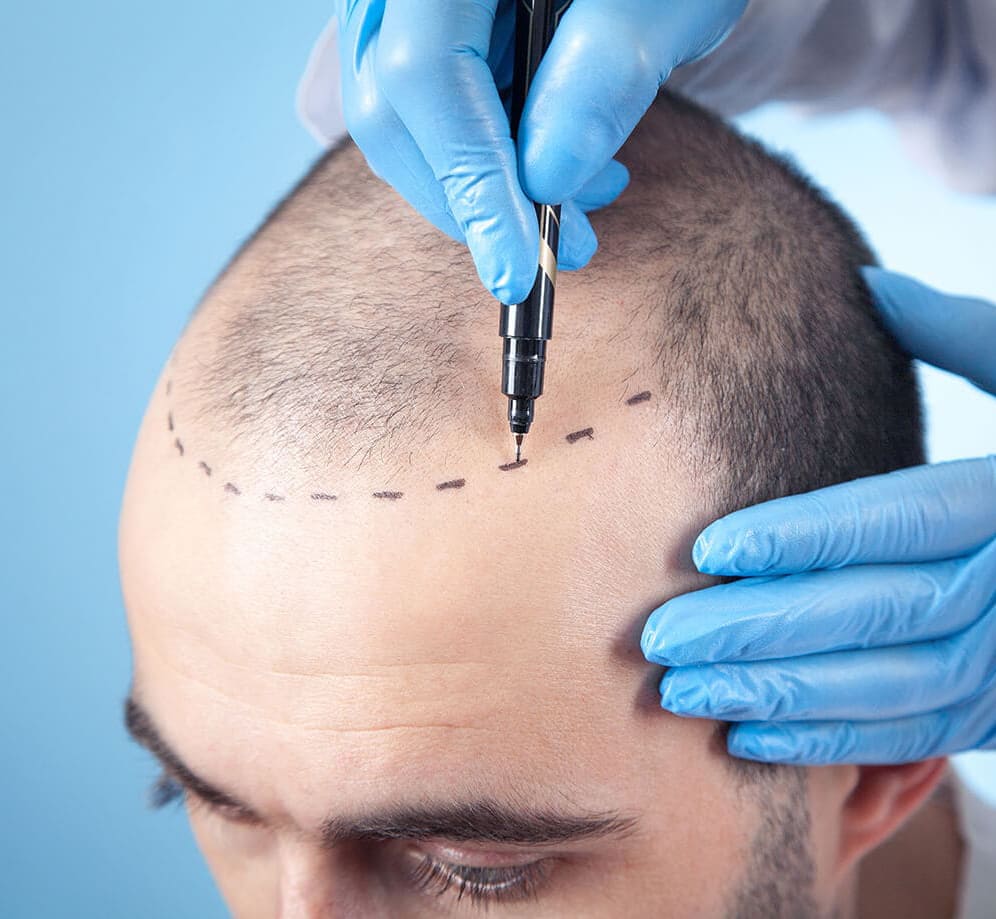What is hair transplantation?
Hair transplantation is a medical procedure that involves removing hair follicles from a donor area (usually the crown, which is genetically programmed not to lose its hair) and implanting them in areas of the scalp where hair is thinning or absent. Thanks to technological advances, this procedure has become increasingly safe and effective, offering natural, long-lasting results.
Hair loss can have many causes, including aging, genetic factors, hormonal imbalances, stress, health problems and physical trauma. Hair transplantation is an option for those wishing to regain a dense, confident head of hair.
Causes of hair loss
Hair loss can be a frustrating and emotionally difficult problem to deal with. So it's important to understand the underlying causes of hair loss in order to better treat the problem. The main causes of hair loss include aging, genetic factors, hormonal imbalances, stress, health problems such as alopecia, and physical trauma such as burns or scars.
The benefits of hair transplantation
Hair transplantation offers many advantages for those wishing to regain a dense, natural head of hair. Firstly, it offers permanent results, unlike other hair loss treatment methods which may require regular touch-ups. What's more, hair transplantation delivers natural results, since the implanted hair comes from your own scalp.
The different types of hair transplant
There are several hair transplant techniques, each adapted to specific needs. The most commonly used method is hair follicle transplantation (FUE), in which individual hair follicles are removed from the donor area and implanted in the target areas. Another popular method is strip grafting (FUT), where a strip of scalp containing hair follicles is removed and then cut into follicular units for implantation.
The hair transplant process
The hair transplant process involves several steps. First, the surgeon performs an assessment of your scalp to determine the best approach. Next, the donor area is prepared by shaving the hair. Hair follicles are then carefully and precisely harvested and implanted in the target areas of the scalp. The process can take several hours, depending on the quantity of hair follicles to be transplanted.
Hair transplant criteria
Before undergoing a hair transplant, it's important to meet certain criteria to ensure optimal results. First of all, it's essential to have a suitable donor area, where the hair is dense enough to be harvested. In addition, it's important to have realistic expectations of the results of the hair transplant. Finally, it's advisable to choose a surgeon with an experienced and qualified medical team, who will be able to assess your specific case and advise you on the best approach to take.
Hair transplant care
Post-hair transplant care is essential to promote healing and ensure optimal growth of new hair. After the procedure, it's important to follow the surgeon's instructions for washing, drying and handling the hair. It is also advisable to avoid strenuous physical activity for the first few days following the transplant, to ensure uncomplicated healing.
Expected results of hair transplantation
Hair transplant results can vary depending on a number of factors, such as the quality of the hair follicles harvested, the technique used and the individual healing process. However, in most cases, patients can expect natural hair regrowth within months of the procedure. It's important to note that hair growth can take time, and several months are needed to achieve full results.
Possible risks and complications of hair transplantation
Although hair transplantation is a safe and common procedure, there are certain risks and possible complications. These include infection, excessive bleeding, scarring, pain or discomfort, scarring problems and unsatisfactory results. It's important to discuss these risks with your surgeon before deciding to undergo a hair transplant.
Conclusion: Hair transplants as a solution for abundant, natural hair
In conclusion, hair transplantation is an effective and permanent option for those wishing to regain dense, natural hair. Thanks to technological advances and modern techniques, this procedure offers long-lasting, natural results. However, it is important to choose a surgeon assisted by a medical team specialized and dedicated to hair transplantation, and to follow the appropriate post-transplant care to maximize results. If you dream of a full head of hair, don't hesitate to consider hair transplantation as a lasting and satisfying solution.


